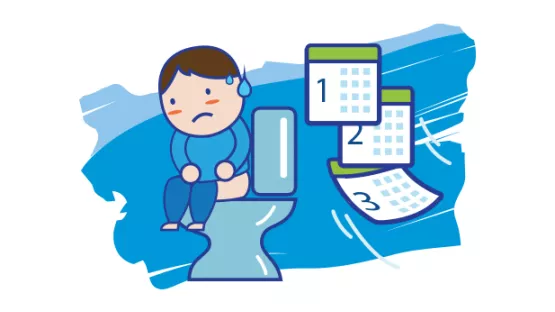
Constipation: When 'going' gets tough
Constipation increases in 3 main groups
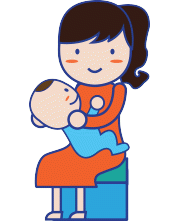
Breastfeeding age
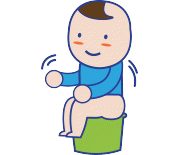
Toilet training

School age
Symptoms of constipation
Constipation is generally difficult to define, as there are no clear indications of what is ‘normal’ in terms of the frequency of bowl movements, and symptoms may vary from child to child. How then, does one tell if infrequent bathroom visits are normal for your child, or could be a sign of constipation? If you’re concerned that your child could be suffering from constipation, look out for these signs:
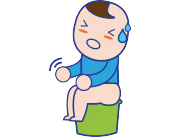
Difficult and infrequent bowel movements
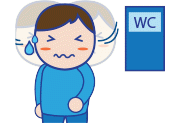
Refusal to go to the toilet

Underwear is sometimes unknowingly soiled
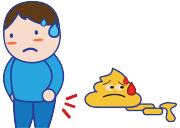
Experiences anal pain, has uncontrolled bowel movements or blood in stool

Stool looks solid, lumpy or generally abnormal
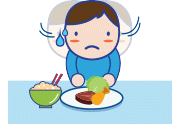
Child has abdominal pain and a poor appetite
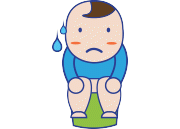
Infant passes meconium after 48 hours or more at birth
Why constipation develops in children
Various habits and behaviours of children can increase the likelihood of constipation occurring. Some of these behaviours include:
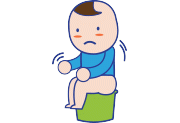
As children under 5 years of age cannot control
their faecal excretion reflux, it sometimes causes
difficult bowel movements
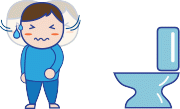
Some children refuse to go to the toilet or have
regular bowel movements, which could lead to
constipation
Some children have a fear of sitting on the toilet or having regular bowel movements. As such, they choose to intentionally hold back their stool, a habit that could lead to constipation. This is how it could occur:
International stool retention leading to constipation
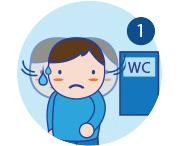
Your child refuses to go to the toilet
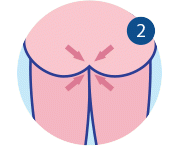
This causes anal muscle spasms and squeezed buttock muscles
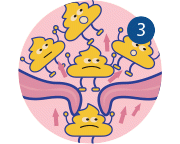
As a result, faeces is pushed up to the rectum valve
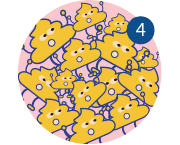
In turn, this causes constipation in your child
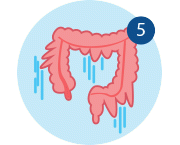
Leading to colon dilation and decreased rectal sensitivity
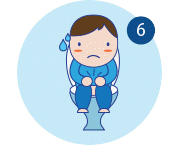
That results in prolonged faecal accumulation, contributing to constipation
Causes of constipation
There are many causes of constipation, including diet, medications, activity, diseases and disorders. Children can also get constipated due to stress, or when they’re not ready for toilet training. Some of these key causes are:
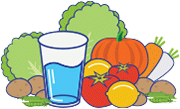
Insufficient water and fibre – A diet that includes an excessive intake of soft drinks, with insufficient drinking water, fruit and vegetables

Taking some medicines – Antipyretics, analgesics, cough medicine, diarrhoea medicines could be a cause of dry stools and difficult bowel movements
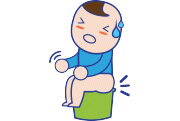
Anal fissure – Difficult and painful bowel movements
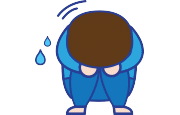
Emotional disorders – Being in a stressful home or family atmosphere, with divorced parents, a new baby, etc.
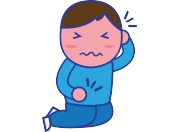
Diseases – Development of disorders related to the colon, rectum, nervous system, blood, etc.
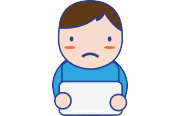
Inactivity – That causes inactive peristalsis
Remidies of constipation
Most children with constipation may not need treatment to remedy this condition, as this condition can generally be resolved with changes in diet or behaviour. However, if changes in diet or behaviour do not improve your child’s condition, do make a visit to your paediatrician for advice. Depending on the cause, duration and severity of constipation in your child, some medication or alternate forms of treatment might be required to treat the condition.
Mums and caregivers can also encourage their child to adopt good toileting habits that can ease their bowel movements, including:
Tips for moms
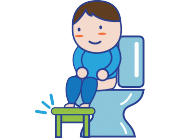
Adopting a comfortable posture of their legs and feet
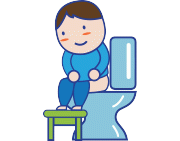
Taking a deep breath, and holding their breath while straining to ease bowel movements
Advanced reading: Bristol Stool Scale
An average body takes about 18 to 72 hours to convert food ingested into faeces to pass it out, but regularity of bowel movements can differ individually. When the time is significantly shortened or lengthened, this results in diarrhoea or constipation due to the amount of water absorbed by the intestines.
The Bristol Stool Scale is a good indication of whether or not your child is suffering from constipation, as normal faeces should be passed out in the texture of Types 4 to 6, rather than dry, lumpy pieces in Types 1 to 3 that are hard to pass out.
Physical constipation
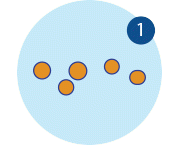
In hard lumps or shaped like nuts
Functional constipation
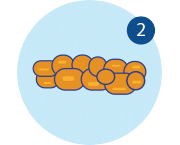
Sausage-shaped or lumpy stools
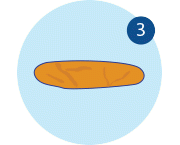
Like a sausage but with many cracks on the surface
Normal bowel movements
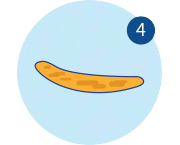
Like a sausage or snake, smooth & soft
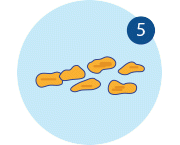
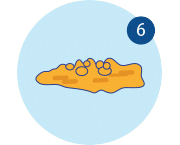
Fluffy pieces with ragged edges or mushy stools
Diarrhoea
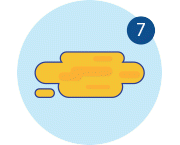
Watery with no solid pieces or entirely liquid
Effect of prolonged constipation
If your child has experienced this condition for a prolonged period, it might be wise to call your doctor. Do seek medical attention especially if your child is suffering from any of these symptoms, including:
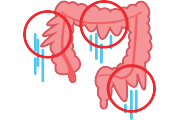
Colon dilation (where the colon is unnaturally extended)
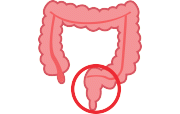
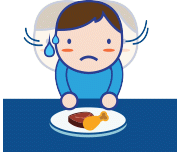
Poor appetite of your child

Slow weight gain in your child
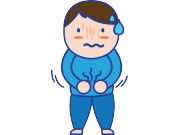
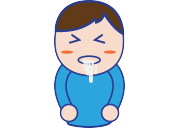
Vomiting
Related Articles
